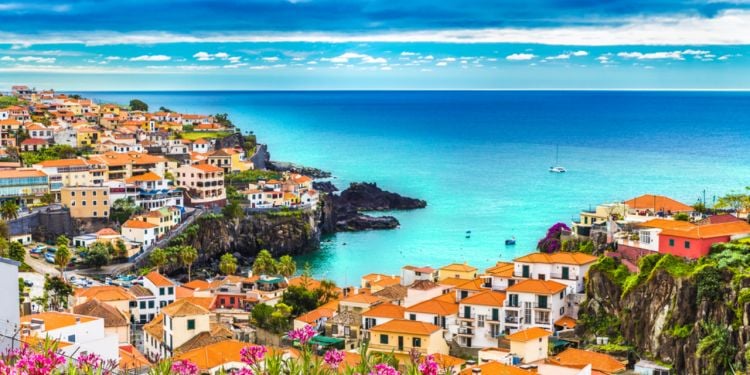How to retire in Portugal

Over the past few years, Portugal has become quite the popular destination for retirement, much due to its low tax rates, affordable cost of living and modern and attractive lifestyle, along with a mild climate. It's also an EU country, an attractive destination for other EU residents looking to relocate. If you are considering retirement in Portugal, there are a few things you should take into account.
Why retire in Portugal?
Over the past few years, Portugal has become one of the most popular destinations for retirees in Europe, much due to its mild sunny climate, picturesque scenery, favorable taxation options and affordable living costs.
However, although the country is still a very sought-after option for foreign retirees, things have been slowly changing. Often seen as a low-budget option by North Americans, Scandinavians and other Western Europeans, the cost of living has skyrocketed in the big cities (Lisbon, Porto and the Algarve), especially when it comes to rent and property prices. Chances are most people coming from those regions will still find Portugal relatively affordable, but it's far from being the cheap bargain it once was. Plus, pensioners receiving funds from their home country used to enjoy the special Non-Habitual Resident status (NHR), where all their income was taxed at a 20% flat rate. However, that policy was highly unpopular among locals, often regarded as unfair and as one of the main causes for the arrival of so many pensioners and digital nomads over the past couple of years, leading to a huge housing crisis. In response, the government has announced the special regime will be scraped in 2024.
Nevertheless, there is still plenty to be excited about when it comes to retiring in Portugal:
The weather
Those living in cold and rainy climates see Portugal as the perfect escape into the land of constant sunshine. If you are looking for warmth, take a look at the southernmost regions of Portugal. Towns like Faro, Lagos, Tavira and others are especially popular with expats from the UK. Lisbon, Cascais and the Silver Coast have a more moderate climate and are known for their cozy beach communities. On the other hand, if you prefer to experience all four seasons, consider settling in Serra de Estrela and other northern inland cities, where you can find a more relaxed atmosphere and wonderful hiking routes.
Cost of living
According to the cost-of-living portal Numbeo, Portugal is more affordable compared to many other European countries. It is generally estimated that Portugal is 37% less expensive compared to the UK and over 40% less expensive than living in the US. Naturally, it depends on where in Portugal you choose to settle. Things tend to cost more in big cities like Lisbon and Porto, as well as in popular beach resorts and luxury coastal neighborhoods.
Safety
According to the 2023 Global Peace Index, Portugal is the 7th safest country in the world. Portugal has a rather low crime rate and violent crime is very rare.
Different living options
Portugal has something for everyone. Whether you want to retire in a big city, a vineyard in the mountains, or a luxury resort by the beach, you are sure to find what you are looking for. Plus, as it is a rather small country, you will be able to effortlessly change scenery: a drive from Porto to Lisbon, for instance, only takes 3 hours.
Language
In big cities like Porto and Lisbon, you should be okay getting by with just English. However, attempting to learn and speak Portuguese will be much appreciated by the locals — and they will gladly help you out if you are ever in trouble. What's more, Portuguese is the 9th most spoken language in the world (6th if accounting for just the natives), so learning it in your free time can be quite useful.
What you need to know before retiring in Portugal
Unless you are already very familiar with Portugal, you should consider making a short trip over to the country to learn more about it and see whether it meets your needs for retirement. Some factors to consider include:
- Buying or renting accommodation within budget and deciding on which areas to settle;
- Language and cultural differences between Portugal and your home country;
- Obtaining an appropriate visa, if required;
- Social Security access to your pension from your home country;
- Relocating to Portugal with your pet;
- Moving with your car;
- Obtaining a local driver's license.
A great way to start planning is by checking out our Portugal Expat Guide, as well as local newspapers, which will give you a better idea of what life is all about in the country. This can also give you a feel for local real estate prices, important news issues for expats, and other considerations.
Best areas to retire in Portugal
You will have lots of options when settling in Portugal — and it all depends on what you are looking for. There are beautiful oceanfront neighborhoods, remote properties in the mountains, and busy and sophisticated cities like Porto and Lisbon. However, some areas in Portugal are more popular with retirees (and expats in general). And if you think you might feel more comfortable in an expat community, here are the areas to consider.
The Algarve
Especially popular with retirees and English-speaking expats in general. It is famous for its beaches, surfing, and affordable real estate. In fact, it was once even dubbed the most affordable location for retirees in Europe by Forbes magazine (though that is no longer the case).
Madeira
A pretty off-the-beaten-path option, Madeira is an island in the Atlantic Ocean that is located about 1,000 km off the Portuguese mainland. It's a great choice for those who want to stay away from city noise and be one with nature. It is also a great destination for exploring what the island lifestyle is all about.
Lisbon
Lisbon is the heart of Portugal, with a thriving expat community. If you are looking for all the amenities of big city life, Lisbon won't leave you disappointed. Here, you will never be short of things to do and explore in Lisbon, from a variety of events and festivals to museums, restaurants, expat clubs, and more. However, Lisbon is also by far the most expensive city in Portugal, and rent prices are outrageous.
Northern Portugal and Porto
Northern Portugal is an area that is often overlooked by newcomers — except for Porto, which has a large expat population. However, even beyond Porto, this area has a lot to offer retirees, such as a beautiful countryside, picturesque mountains and vineyards. Plus, if you stay away from Porto, the region is also home to some of the lowest real estate prices in the country.
Retirement visas to Portugal
If you are a citizen of an EU country, retiring in Portugal is very easy. All you will need to do is apply for a residence permit from any Portuguese Immigration Service (Serviço de Estrangeiros e Fronteiras) office or SEF.
Non-EU residents will need to apply for a retirement-based residence permit in their home countries via a Portuguese consulate or embassy. The application process may take up to three months and you will need to provide the following documents:
- Valid passport or other form of ID;
- Proof of income to support you during your stay in Portugal (you shouldn't see employment in Portugal during your stay or rely on the country's welfare system);
- Proof of medical insurance;
- A copy of your criminal background check.
You may also be asked to provide extra information and documents.
Residence permits for non-EU nationals are typically granted for a period of five years. At the end of the five-year period, you will be able to apply for permanent residence in Portugal.
Who is eligible for Portugal's Golden Visa?
For investors wishing to enjoy legal residence and the prospect of gaining citizenship through the Golden Visa scheme, they need to fulfill one of the following:
- Creating at least 10 job postings;
- Investing 500.000€ in scientific research activities;
- Investing 250.000€ in arts or in the preservation of local heritage sites;
- Investing 500.000€ in subscription units of mobile investment funds;
- Investing 500.000€ in creating a local company or supporting an existing one, so as long as the investment leads to the creation or maintenance of at least 5 job positions for a minimum of 3 years.
Buying property in Portugal, on the other hand, used to be a better option for people planning to stay in the country for a long time. While many foreign investors used to buy 500,000€ worth of property in order to get access to the Golden Visa Scheme, the government has suspended that part of the program.
If you do qualify for the Golden Visa, obtaining it will give you the right to do the following:
- Enter Portugal without applying for any additional visas;
- Live and work in Portugal — provided you stay in the country for at least seven days in the first year and two weeks or more in the years to follow;
- Travel visa-free within the Schengen Area;
- Apply for permanent residence and citizenship in the country after 5 years.
To learn about the Golden Visa, make sure to check Portugal's SEF (Servico De Estrangeiros E Fronteiras) website.
Retirement age and pension in Portugal
As of 2023, the retirement age in Portugal is set at 66 years and 4 months. The pension in the country is contribution-based and becomes available to residents if they have been making social security payments for at least 15 years during their employment. On the other hand, workers who have been making social security payments for at least 40 years can retire from the moment they turn 60.
If you are an EU citizen, you should be able to transfer your pension contributions to Portugal quite easily.
If you come from a country that is not a member state of the EU, you should check with the pension services in your country about the options for withdrawing your pension abroad. There are tax and social security agreements between Portugal and some non-EU countries — and this makes things much easier for relocating overseas.
Taxes for retirees in Portugal
It is recommended to enquire if there are non-double taxation agreements between Portugal and your home country before relocating. Otherwise, you may end up paying more tax than is required.
How much tax you pay depends on your residence type. You will be considered a habitual Portuguese resident for tax purposes if you spend more than 183 in the country during the tax year, which is from January 1st to December 31st. If you spend less than 183 days in the country but own property in Portugal, you may still be considered a resident for tax purposes.
Note that as residents in Portugal are taxed on their worldwide income, your private pension that you receive from abroad may also be liable to taxation. With that, in certain cases, you might be able to receive your pension from abroad without being taxed on it. To do this, you will most likely need to use an offshore pension scheme — like the Qualifying Recognized Overseas Pension Scheme (QROPS) available for citizens of the UK.









